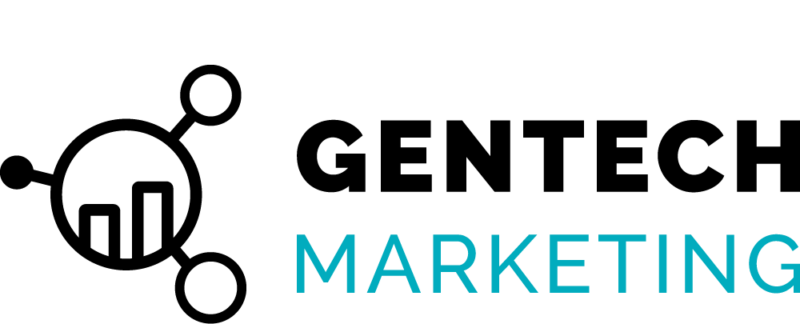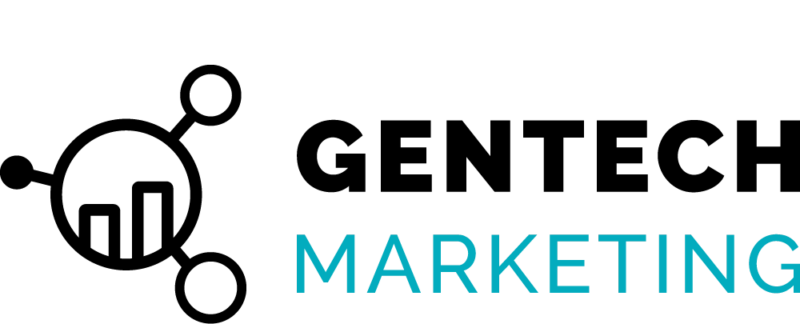The truth is, digital marketing doesn’t sit still for long. Things that were successful two years such as packing blog posts with keywords or just running a Facebook ad will not work anymore. The globe has become smarter, faster, and more data-driven.
In case you are willing to differentiate yourself in 2025, you don’t need to know everything, but you have to master a few skills that connect the creative side with technology. We examine the real demand for skills today and why these skills will be your career (or business) safe for the next years.
Key Takeaways
- Fantastic storytelling instills trust and ensures your brand is unforgettable.
- Concentrate on your intent, subjects, as well as user experience, rather than placing keywords everywhere.
- Understanding insights, not just read analytics make you valuable.
- Leverage automation and AI tools to save time, but remain human.
- Tiny conversion tweaks can lead to massive revenue results.
- Authentic, helpful videos connect faster than polished ads.
- Targeted advertisements ensure instant visibility and quantifiable returns.
- Personalised, value driven emails come in as the highest ranking channel under digital.
- All solutions work better with empathy, curiosity, and communication.
- Understanding how channels connect keeps you adaptable and future-ready.
Table of Contents
Toggle1. Content Strategy and Storytelling
We’ll begin with the most ancient rule of marketing: advertisements are not remembered by people — but rather stories are.
At the core, a content strategy is way too large an idea to be thought of as simply blogging or posting on social media. It means understanding the needs of the target audience and then finding creative ways to deliver them. It may be a detailed guide, a compelling video, or even just a tweet that connects with people.
Why it matters:
- Builds trust and brand loyalty
- Drives organic SEO without relying on paid traffic
- Converts passive readers into paying customers
Real-world example: Think of brands like Airbnb or Nike. Their content doesn’t scream “buy now.” It inspires you to imagine yourself in the story. That’s what real content marketing does.
2. Search Engine Optimization (SEO) — the Smart Way
SEO isn’t dying; it’s transforming. The days of keyword stuffing are gone.By 2025, Google algorithms, and also AI search tools such as Gemini and ChatGPT, will heavily emphasize topic expertise and clarity of the content.
How to keep your business competitive you will have to figure out:
- Search intent — why people are searching
- Entity SEO — how topics connect semantically
- Generative Engine Optimization (GEO) — how AI search engines interpret information
- User experience (UX) — how visitors feel on your page
Why it’s in demand:
Because even with AI, someone still needs to teach search engines what good content looks like — and that someone is an SEO-smart marketer.
3. Social Media Strategy and Community Building
Social media is pretty loud. However, these brands which understand the way to create a genuine community instead of merely looking for followers, are the ones that win.
Marketers who get humans, trends and storytelling are winning. Being viral is not the only thing that matters — it is more about talking.
Abilities to cultivate:
- Creating catchy short-form (Reels, TikToks, Shorts) to be shared again on different social networks
- Social listening and trend analysis
- Building engagement through authenticity, not gimmicks
- Paid campaign management across platforms
Why it’s hot: Every business — from solo entrepreneurs to global brands — needs someone who can turn followers into fans.
4. Data Analytics and Marketing Measurement
Data is the new creative partner.
Marketers who can interpret analytics — not just read reports — are gold. It’s one thing to say a campaign “performed well.” It’s another to explain why it worked, what it means, and how to scale it.
Key tools worth mastering:
- Google Analytics 4 (GA4)
- Looker Studio (for dashboards)
- HubSpot, Salesforce, or Zoho CRM
- Heatmap tools like Hotjar or CrazyEgg
Pro Tip: Combine analytics with narrative. And it’s not about dumping numbers; it’s about explaining the story that the numbers are telling.
5. AI Tools and Automation
Here’s the big one. Artificial intelligence isn’t replacing marketers — it’s making the good ones faster.
AI is capable of writing, designing and audience segmentation, and it can even forecast trends. However, it still needs a human brain to manage it. Find out how to discuss AI tools without sounding like a robot.
Examples of tools to learn:
- ChatGPT, Jasper, and Copy. ai (content)
- SurferSEO and Clearscope (optimization)
- HubSpot AI and ActiveCampaign (automation)
- Midjourney and Canva Magic Studio (design support)
Why it matters: Businesses are awash in tools too, but they don’t necessarily know how to connect them into a workflow that saves time and keeps the brand voice intact.
6. Conversion Rate Optimization (CRO)
Anyone may bring all the traffic in the world to their site — however, if it is not converting, then it is as if it were white noise.
CRO is the practice of making customers out of the users who click on your site.
These skillful marketers who are able to experiment with landing pages, create convincing copy and enhance user journeys are constantly sought after.
Core CRO elements:
- A/B testing and heatmaps
- UX writing and persuasive design
- Clear CTAs and value messaging
- Funnel analytics
Why it important: Just 1% rise in your conversion rate might be the reason for a very large volume of extra money coming your way.
That’s why CRO pros get paid well.
7. Video Production and Editing
If there’s one skill that exploded post-pandemic, it’s video. The average person spends more than 17 hours a week watching online videos — and that number keeps climbing.
You don’t need Hollywood-level gear. A smartphone, some good light and a rudimentary grasp of storytelling is all you need to get started.
In-demand formats:
- Product explainers and tutorials
- Short-form social clips
- Educational YouTube content
- Live streams and webinars
Tools to know: CapCut, Premiere Pro, Descript, Canva and Runway.
The aim is not perfection — it’s connection. Just about, every time open camera performs better than polished video.
8. Paid Advertising (PPC, Meta, LinkedIn, TikTok Ads)
Digital advertising keeps changing almost as fast as the platforms that are used to host the advertisements. If from all the noise of targeting, bidding, and creative optimization you can still make sense of things, then you will be allowed to stay there.
What are the ad skills that will get you hired?
- Google Ads & Performance Max Campaigns
- Meta Ads (Facebook/Instagram)
- LinkedIn Ads for B2B
- TikTok Ads for creative storytelling
Why it’s valuable: Companies want marketers who can execute campaigns that result in ROI, not just impressions. If you can do that, your skillset is future-proof.
9. Email Marketing and Personalization
Here’s the quiet workhorse of digital marketing — email.
It’s not flashy, but it performs better than almost all the other channels if you use it effectively. Marketers who can write persuasive emails that are human-sounding and feel like anything but spam are always in demand.
Learn how to:
- Segment audiences and build lists
- Write personalized subject lines
- Create automated drip campaigns
- Analyze open and click-through rates
Why it matters: As cookies vanish and algorithms change, your Email list will be the greatest competitive advantage to own your audience.
10. Strategic Thinking and Adaptability
All the tools and tricks mean nothing if there’s no strategy. The most effective marketers in 2025 have strategic minds – they see the big picture, connect the data to the creative, and effectively pivot when trends change.
That means learning:
- How different channels interact
- How to read market signals
- When to double down and when to stop
In short: think like a business owner, not just a marketer.
Bonus: Soft Skills That Make You Stand Out
Technical skills get you the job. Soft skills make you indispensable. The most in-demand marketers also have:
- Empathy (understanding what people really want)
- Clear communication
- Time management and focus
- Curiosity — the urge to test, learn, and improve constantly
These are the skills no AI can replicate.
Conclusion
The art of marketing in 2025 is heavily reliant on the perfect combination of art and analytics.
In case you are able to craft a narrative that connects, assess its effect, and change according to what the data is telling you — your services will always be sought after.
Initially, you could take one or two skills from this set, work on actual projects, and communicate your achievements. Each promotion is a lesson learned.
It is the manner in which successful marketers evolve — not by following every trend, but by becoming proficient in the handful of trends that count. For more information contact GenTech Marketing.
FAQs
1. Which digital marketing skills are most in demand right now?
By 2025, SEO, content strategy, data analytics, AI tools, and video marketing will be the top skills. But the question remains which skill set combinations will be most valuable? The employers say that versatility is more powerful than specializing in one skill.
2. How long does it take to learn digital marketing?
The fundamentals of digital marketing can be understood within a few months, however, the real skill comes from the continuous practice. You can start with something small like establishing a blog, running a test ad, or launching a simple email campaign. The real world experience is far superior to the theory.
3. Do I need to code to be good at digital marketing?
Definitely no. Knowing HTML or CSS is a plus, but in reality, the majority of the tools available today do not require coding. Better spend your time on learning strategy, analytics, and communication.
4. What’s the best way to keep my skills up to date?
One can keep one’s skills updated by reading marketing newsletters, enrolling in short online courses, and using new tools for experiments. The point of the endeavor is not to achieve perfection but to make progress.
5. Which skill pays the most in digital marketing?
Usually, data analytics, SEO, and paid advertising specialists are the ones who make the highest wages. However, the strategic positions (e.g., Marketing Director or Growth Manager) that involve a combination of various skills have the highest salary levels.



